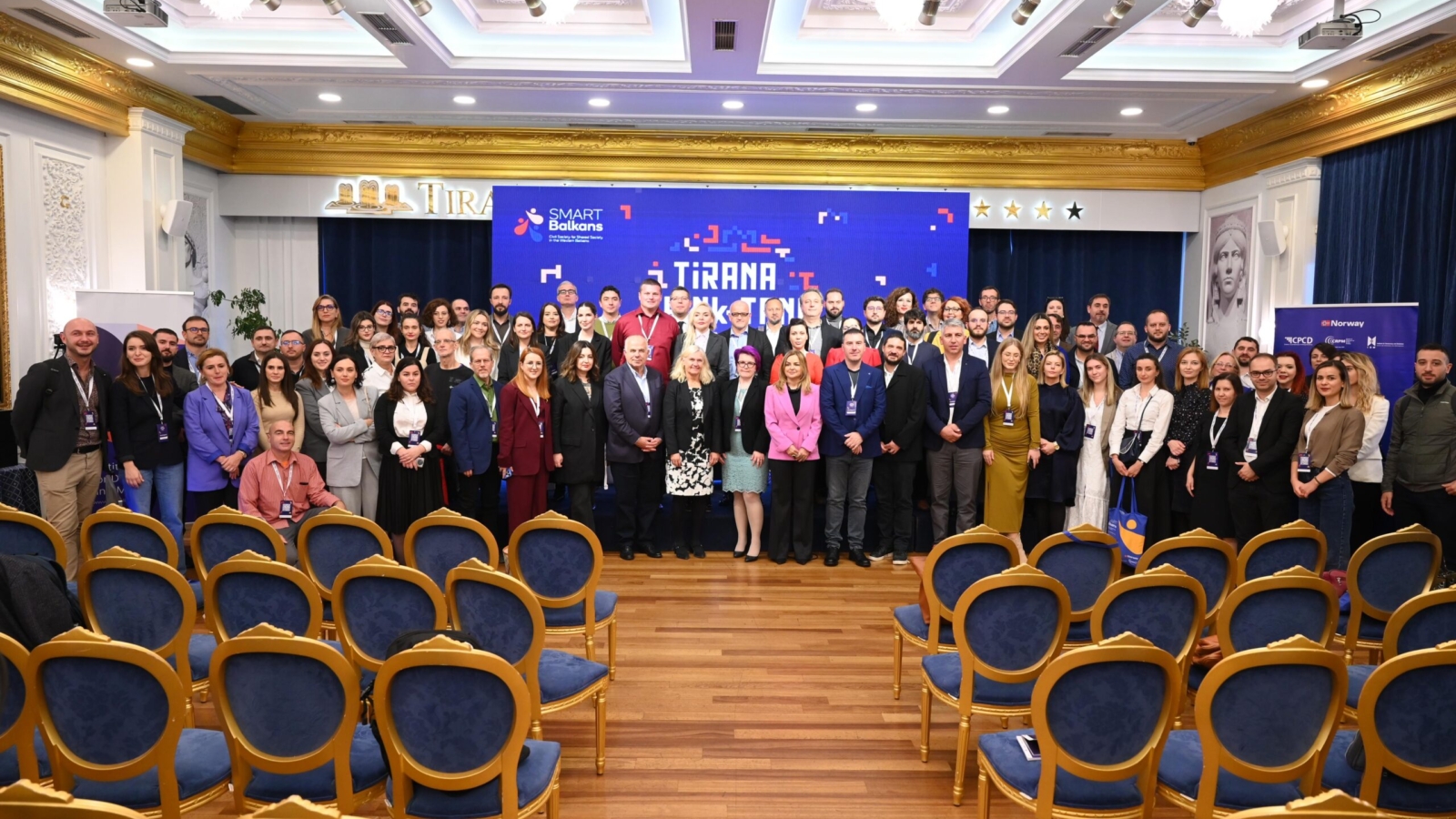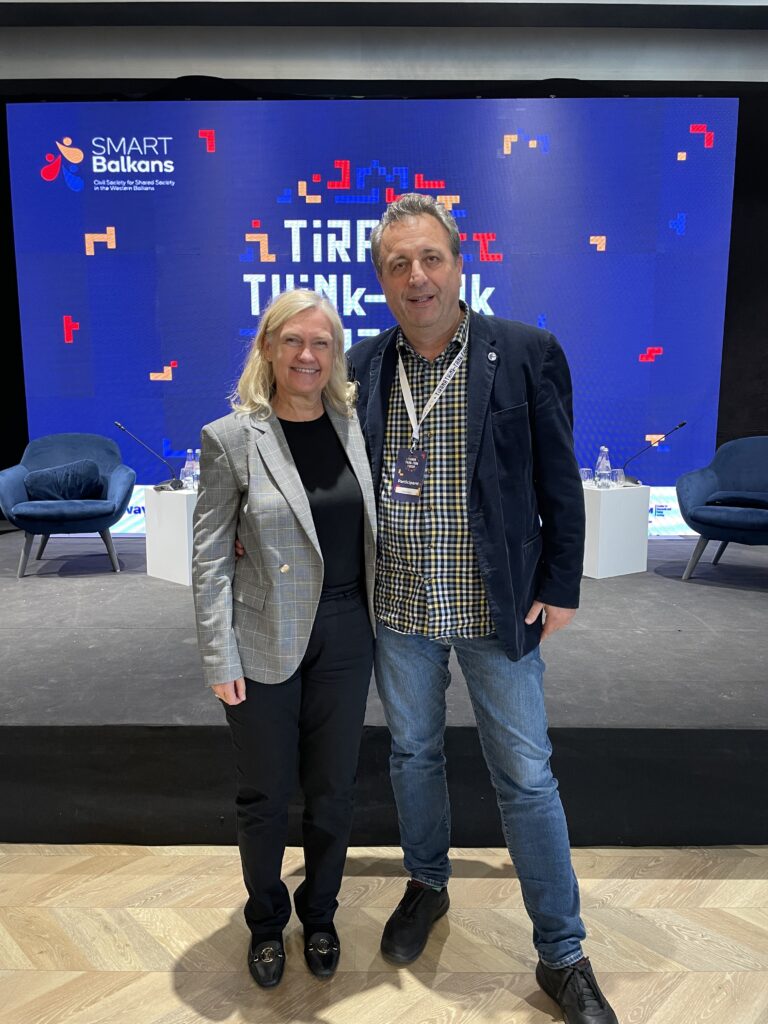“Think Tanks in the Time of Hybrid Regimes – Challenges to Impact, Integrity, and Independence”
13–15 November 2024, Tirana
The Tirana Think Tank Forum 2024 was more than just an exchange of ideas; it fostered meaningful connections, explored innovative solutions, and reinforced the collective mission of think tanks to uphold democratic principles. With 30 distinguished panelists and over 100 participants from across the Western Balkans and EU, the forum provided a unique platform for collaboration and dialogue.
Two-Part Structure
The forum featured two complementary components:
- Closed-Door Sessions: Designed to provide a safe and informal space for think tank representatives to delve into the challenges and opportunities they face in their daily work.
- Public Sessions: Open to a diverse group of stakeholders, these sessions facilitated dynamic discussions on the critical role of think tanks in hybrid regimes and their broader impact.
Day One: Breaking Barriers and Setting the Stage
The event opened with a welcoming session by Gjergji Vurmo, Senior Advisor at IDM Albania, and Dajana Cvjetkovic, Project Manager of SMART Balkans, who outlined the forum’s vision and objectives.
The interactive session “Speed Date & Think Tanks’ Problem Box” helped participants identify and categorize key internal and external challenges affecting their organizations. These insights set the stage for the “Spell & Work It Out” panel, moderated by Agron Demi, which tackled pressing issues such as funding, staff retention, AI adaptation, and organizational resilience.
Day Two: Building Bridges with Donors and Policymakers
The second day facilitated dialogue between think tanks and donors, emphasizing the need for qualitative fundraising strategies and meaningful partnerships.
The Plenary Session, moderated by Gjergji Vurmo, focused on the role of think tanks in policy-making within hybrid regimes, highlighting the constraints civil society faces in environments where democratic institutions are weakened. The session “Pushing the Boundaries for Evidence-Based Policy Making – A View from the Other Side”, led by Sonja Stojanovic, provided a government perspective on evidence-based decision-making, stressing the importance of collaboration between policymakers, think tanks, and civil society. The day concluded with parallel sessions on Agenda 2030 for Think Tanks, where working groups developed actionable recommendations for the sector.
Day Three: Reflecting on Challenges and the Road Ahead
The third day began with a plenary session moderated by Marija Risteska, discussing the role of think tanks during crises for liberal democracy. Participants examined the “identity crisis” think tanks face in the face of rising hybrid regimes and democracy fatigue.
The Closing Plenary spotlighted the “Agenda 2030 for Think Tanks”, summarizing the recommendations from the working groups, and included a reflection panel featuring young think tankers. This session explored whether the forum met their expectations and charted pathways for the future.
The Tirana Think Tank Forum 2024 marked a significant milestone in creating a regional platform to address the unique needs of the think tank sector. It laid a solid foundation for collaboration, shared objectives, and strengthened the sector’s capacity to navigate complex political landscapes.
Transparency Inernational Macedonia is contuniously strenghtening the cooperation with Royal Norwegian Embassy and their support in fight against corruption for North Macedonia is crucial.





